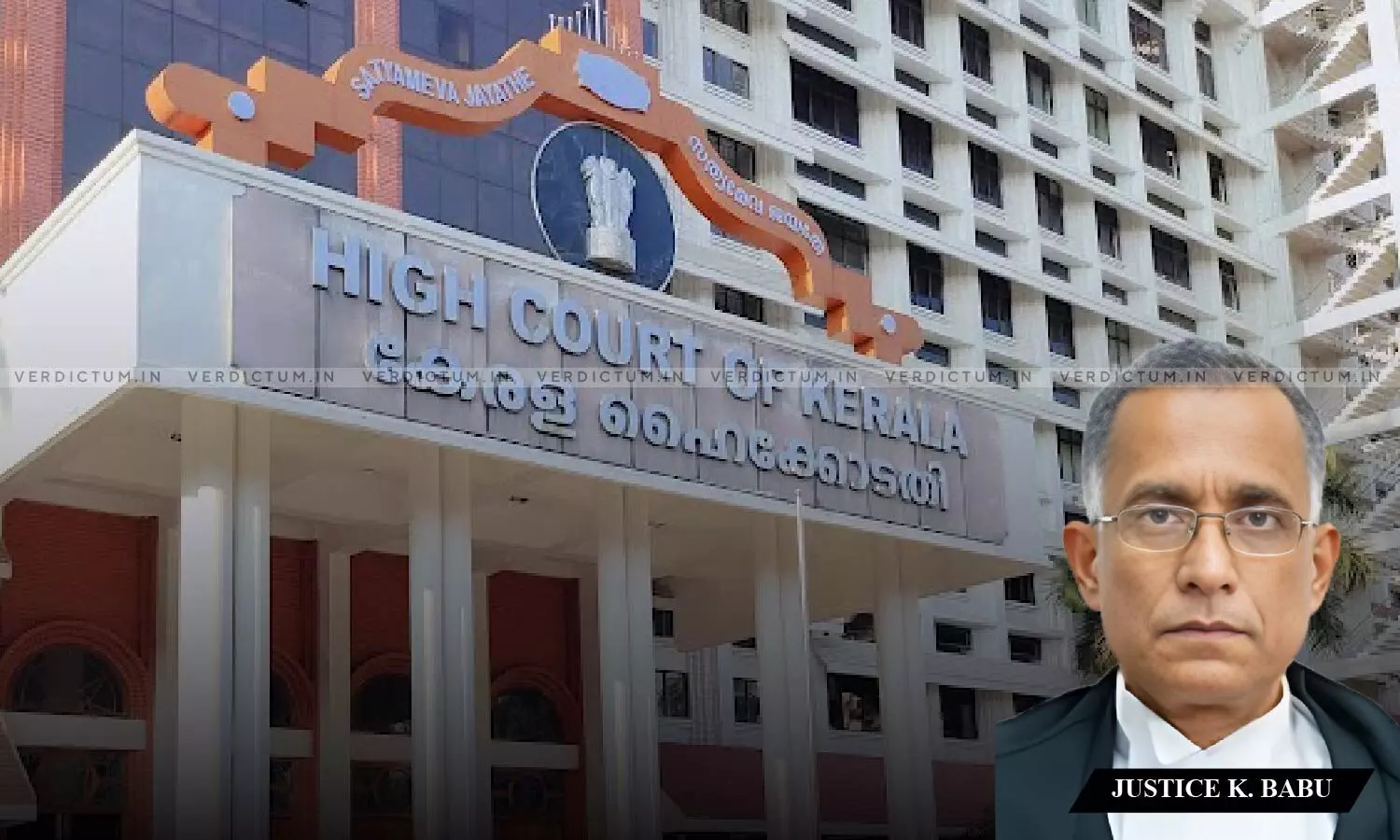
Courts Shall Not Entertain Application Seeking DNA Examination Of Children Born To Rape Victims & Given In Adoption: Kerala HC Issues Guidelines
 |
|In a significant ruling, the Kerala High Court has ruled against the DNA examination of children born to rape victims who are subsequently given in adoption.
The Court was hearing a Criminal Miscellaneous case that has been registered suo motu based on the report of the Project coordinator, Victims Rights Centre, the Kerala State Legal Services Authority.
The Bench of Justice K. Babu emphasized that such examinations could lead to emotional turmoil and violate the right to privacy of the children. "Where blood samples are ordered to be collected for DNA tests from adopted children after they were given in adoption, it may imbalance their emotional status, which will only defeat the purpose of the divine concept of adoption," the Court said.
The Court issued the following guidelines to safeguard the interests of these vulnerable children:
(i) The Courts shall not entertain applications seeking DNA examination of children given in adoption.
(ii) The Child Welfare Committee shall see that the DNA samples of children given in adoption are taken before the completion of the process of adoption.
(iii) All agencies or authorities involved in the adoption process shall ensure that the confidentiality of adoption records is maintained, except as permitted under any other law for the time being in force.
(iv) Even in cases where the children were not given in adoption, the Court shall consider the request for a DNA test of the children of the victim only after assessing the principle of “eminent need” and the doctrine of proportionality.
The decision came after the Victim Rights Centre under the Kerala State Legal Services Authority raised concerns about Orders directing blood sample collection of adopted children, which they argued violated privacy rights and adoption confidentiality. The High Court took suo moto cognizance of the matter to protect the privacy of adopted children.
The Court noted that the report of the Project coordinator points to the glaring conflicts of law relating to a sensitive and vulnerable issue touching on the privacy of the children given in adoption. "The various Courts in Kerala issued orders on the applications preferred by the prosecution to collect DNA of children born to rape victims. The report of the Project coordinator indicates that such orders conflict with Regulation 48 of the Adoption Regulations, 2022, issued in exercise of the powers conferred under Clause (c) of Section 68 read with Clause (3) of Section 2 of the Juvenile Justice (Care and Protection of Children) Act, 2015, which deals with the confidentiality of records to be maintained in the case of adopted children by all agencies and authorities involved," it further noted.
Advocate Parvathi Menon A, appointed as an amicus curiae, submitted that the collection of DNA samples may have an adverse impact on the person and is an encroachment upon privacy and personal autonomy. She also submitted that the exercise of collecting DNA samples is done to strengthen the Prosecution case of rape, which can be successfully proved by positive evidence that the Accused had sexual intercourse with the lady without her consent or against her will and the proof of paternity would not help the Court in deciding whether the accused committed rape on her.
Relying on Regulation 48 of the Adoption Regulations, 2022, issued under the Juvenile Justice (Care and Protection of Children) Act, 2015, the Court stressed the need to protect the confidentiality of adoption records. It also referenced key Supreme Court rulings, including Bhabani Prasad Jena v. Orissa State Commission for Women (2010) and K.S. Puttaswamy v. Union of India (2017), which underscored the right to privacy as a fundamental right.
Citing Aparna Ajinkya Firodia v. Ajinkya Arun Firodia (2023) and other precedents, the court emphasized that DNA tests should only be ordered in exceptional cases. It asserted that such tests were unnecessary for proving cases of rape or under the POCSO Act.
Consequently, the Court set aside previous Orders mandating DNA tests for adopted children, directed strict adherence to confidentiality norms in adoption proceedings and scheduled the matter for further consideration on May 27.
Cause Title: Suo Moto v. The State of Kerala
Appearance:-
Respondent: Advocate Parvathi Menon A. (Amicus Curiae)
Click here to read/download the Order